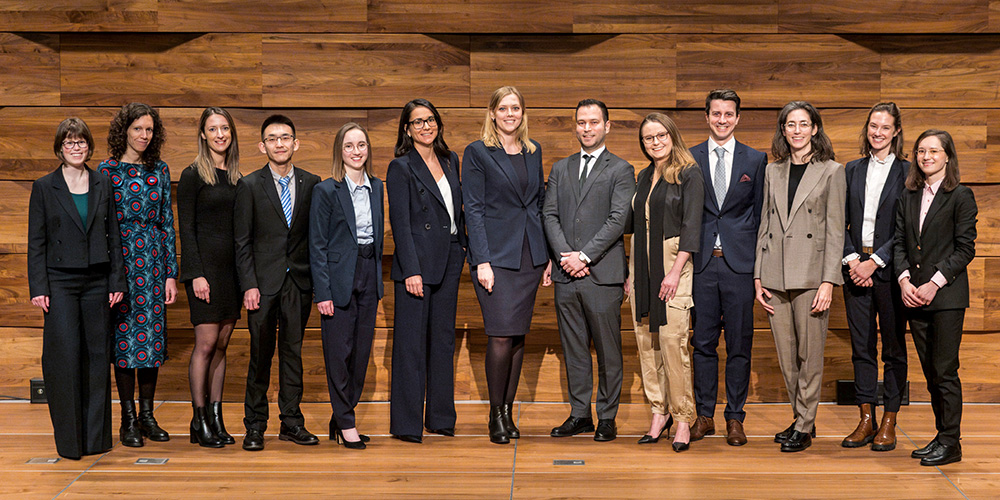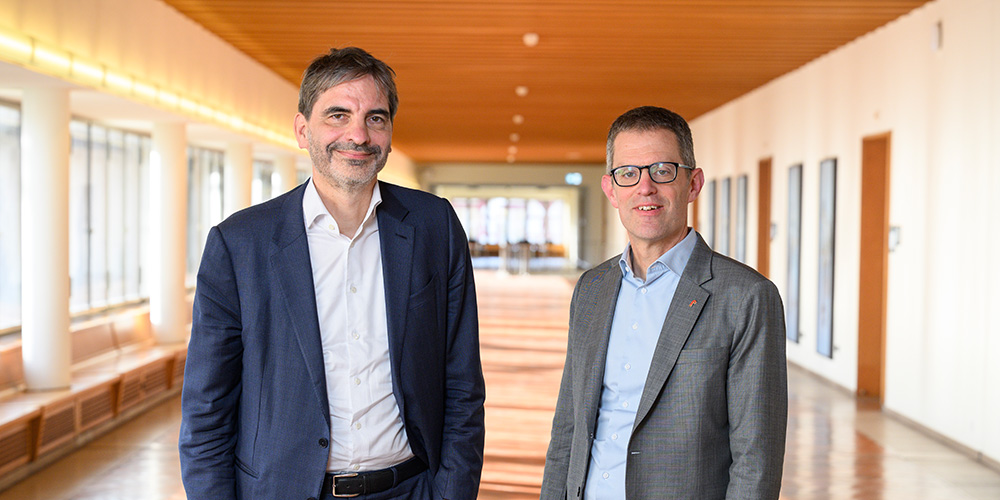Pfizer research awards go to three scientists from Basel
The Pfizer Research Prize is considered one of the best-known awards for medical research in Switzerland. This year, the award is being given to three young scientists at the Basel research location.
26 January 2024
The Foundation Pfizer Research Prize has been honoring outstanding findings from basic biomedical research and clinical research for more than 30 years. During this year’s award ceremony, the Foundation is honoring 13 scientists for their excellent work, three of them at the Basel research location:
The heart condition arrhythmogenic cardiomyopathy can kill without warning, and particularly affects young athletes. Researchers at the University of Basel genetically modified mice to produce a similar disease progression to that found in humans. A team at the Department of Biomedicine was able to identify previously unknown mechanisms and new therapeutic approaches in the process. Lead author Professor Camilla Schinner, who now works at the Medizinische Hochschule Hannover (Hannover Medical School), received the prize for basic research in the category “Cardiovascular Medicine, Urology and Nephrology”.
The prize for clinical research in the category “Cardiovascular Medicine, Urology and Nephrology” went to Dr. Matthias Diebold from the University of Basel and the University Hospital Basel. He was able to show that vaccination against SARS-CoV-2 is not associated with the occurrence of inflammatory kidney disease (glomerulonephritis), contrary to reports that mRNA-based vaccines had been associated with such diseases. Diebold’s study disproved this myth by showing that the observed incidence of glomerulonephritis during the vaccination campaign did not differ from the expected incidence based on the previous five years.
Dr. Barbara Swiatczak from the Institute of Molecular and Clinical Ophthalmology Basel received the prize for clinical research in the category “Neuroscience and Neurology”. Swiatczak explored why some children develop short-sightedness as they grow due to the elongation of the eyeball, while others do not. In an experiment, she made use of the different wavelengths of visible light: by filtering the individual color channels digitally, it was possible to trick the retina and induce changes in eye length in healthy subjects.



